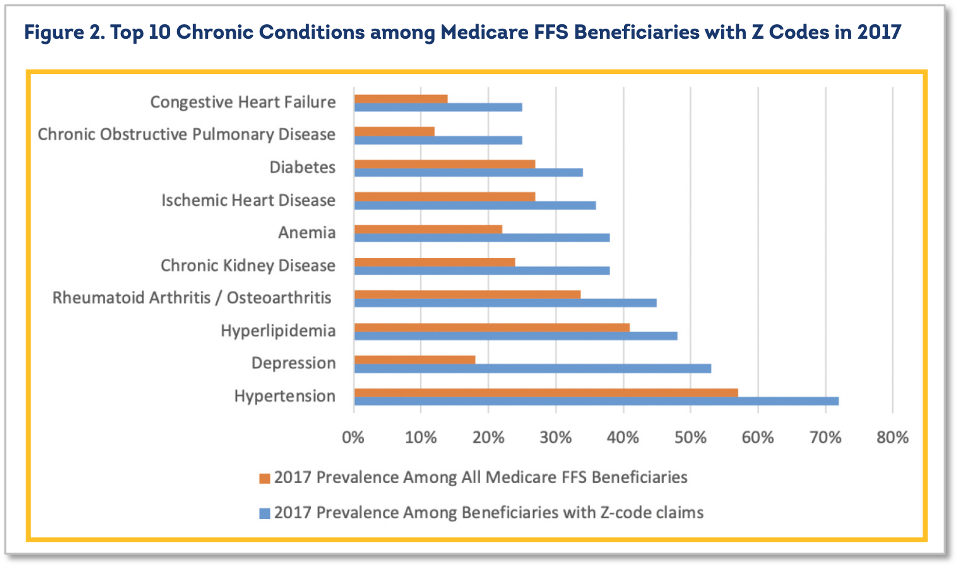Social Determinants of Health (SDoH)
Biomedix Xchange enables the reporting and analysis of population Social Determinants of Health (SDoH) factors to improve patient outcomes
Where people work, learn and play can dictate up to 90% of healthcare outcomes1. These environmental factors can influence the ability for a patient to keep themselves in good health, or the choices required to get the healthcare they need at the right time and in the right place.
1/3 of Americans struggle to meet basic housing, food and transportation needs2. However, only 15.6% of physicians and 25% of hospitals regularly screen for SDoH3.

SDoH Domains
- Housing instability
- Food insecurity
- Transportation problems
- Utility help needs
- Interpersonal Safety
- Financial strain
- Employment
- Family and community support
- Education
- Physical activity
- Substance use
- Mental health
- Disabilities
SDoH and chronic conditions
The reporting of SDoH in the healthcare system is done through a set of Z-codes, and a recent study of 33.7 million Medicare beneficiaries found through claims data that only 1.4% had claims which included SDoH-related Z-codes. However, the prevalence of chronic conditions in this subset of patients was shown to be greatly increased, as illustrated by the accompanying chart.

Biomedix Xchange and SDoH
![]() The Biomedix Xchange population health management platform is a web-based solution designed to enable value-based care organizations to coordinate care for patient populations through an integrated technology stack designed to identify multiple chronic conditions and behavioral health information, and encapsulate that information into a single patient encounter.
The Biomedix Xchange population health management platform is a web-based solution designed to enable value-based care organizations to coordinate care for patient populations through an integrated technology stack designed to identify multiple chronic conditions and behavioral health information, and encapsulate that information into a single patient encounter.
PADnet Xpress is a mobile application that includes an integrated module that collects SDoH data through digital questionnaires, which can be employed in multiple settings, including clinics and homes.
SDoH data can be collected over time, to enable member-level reporting on SDoH status, to determine what resources you are employing to address SDoH in your populations are having a positive impact on outcomes.